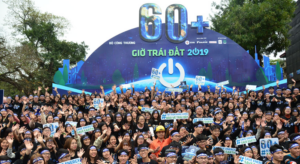Environmental issues challenging the Mekong River were discussed at a three-day international Mekong Environment Symposium, which closes today in HCM City.
Discussion topics included hazards and disaster-risk reduction; climate change; information systems and spatial infrastructure; capacity building; and education and outreach.
The largest challenge for the area is to find an equilibrium between socio-economic transformation and development (which includes the set-up of large hydro-power dams), and the protection of valuable resources in the natural river basin to ensure the livelihood of millions of locals.
“The symposium is an international platform for national decision-makers, renowned scientists and social workers from all six Mekong riparian countries (China, Thailand, Myanmar, Laos, Cambodia, Viet Nam), as well as from the international community to share their experience and knowledge,” MinDirig Wilfried Kraus, deputy head of the German Federal Ministry of Education and Research, told the symposium.
At the symposium, the German -Vietnamese Water-Related Information System for the Sustainable Development of the Mekong Delta in Viet Nam (WISDOM) project handed over its results to the Vietnamese side.
The WISDOM project designed and implemented the information system for the Mekong Delta in the fields of hydrology, sociology, information technology and earth observation.
The symposium was organised by the German Aerospace Center and attracted 300 stakeholders and scientists from more than 20 countries.
The Mekong River flows for 4,800 kilometres through six countries. It contributes 22.6 per cent of GDP for Mekong countries and 10 per cent of the global GDP.
















